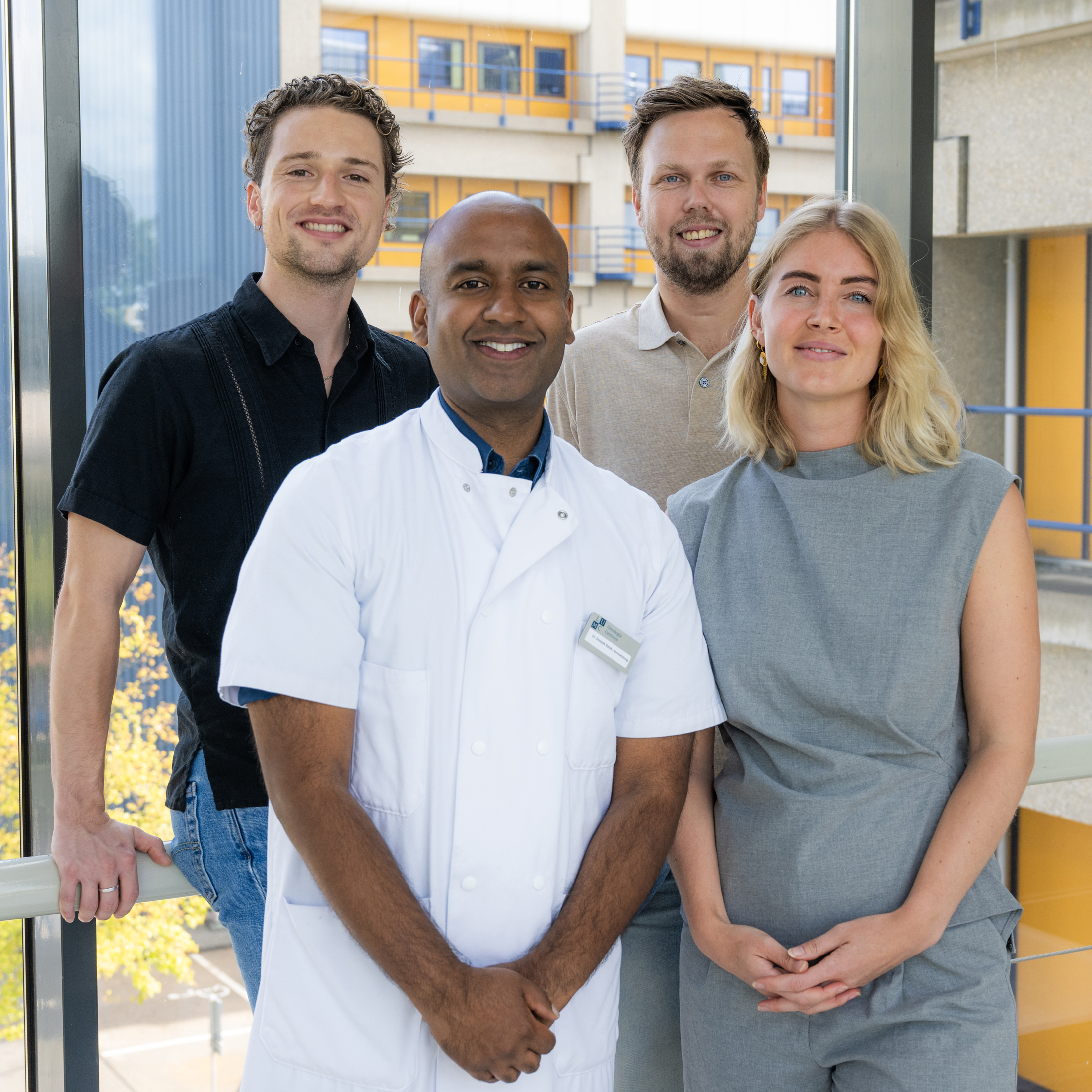Lotte van den Oord
&width=400&height=400)
“It is important that patients do not feel judged. We often categorize based on ethnicity, but that does not always align with how people see themselves.”
How do you experience diversity and inclusion in your workplace?
Healthcare and science are currently still mainly focused on people with a light skin, Lotte explains. “Educational materials for dermatologists are usually based on the lighter skin tones. Only recently has research started paying attention to differences in skin colors. However, there is still no clear way to objectively measure skin color.”
Lotte studies different skin types, both with and without skin conditions. Among other methods, she uses light measurements on the body to better understand and map the skin. She also examines the use of language in healthcare. “It is important that patients do not feel judged. We often categorize based on ethnicity, but that does not always align with how people see themselves.” That is why Lotte is also working on a so-called Delphi consensus study: experts within and outside the LUMC are discussing which neutral and inclusive terms are most appropriate in describing skin colors in healthcare.
This is a sensitive topic, and Lotte receives mixed responses to her work. “Many people recognize the importance of this research, but sometimes I also face negative reactions. Personally, I sometimes find it difficult to be the one conducting this study—with my light skin, blonde hair, and blue eyes. My supervisor Deepak has a different appearance, and together we form a strong team.” Everyone has their own—often unconscious—biases. Lotte: “Through this research, I’ve become more aware of my own biases, and I approach them more consciously now.”
What does your ideal inclusive workplace look like?
Lotte: “For me, that has two dimensions. First, everyone—regardless of skin color, background, faith, or sexual orientation—should receive the same quality of care. Unfortunately, studies within dermatology show that the quality of care for dark skin tones is often lower. People feel unheard. The best care can be provided when healthcare professionals reflect the diversity of society. A lot of communication is culturally bound. If patients can recognize themselves in their caregivers, healthcare becomes safer and more comfortable. In the Netherlands, and also at LUMC, higher-level positions are still mostly held by those who fit the ‘7 checkmarks’. Fortunately, we can see things improving. In our group of doctors in training for example, it’s become more diverse.”
Which elements of our work culture currently make you happy or proud?
“With the arrival of the Diversity Board, the theme of inclusion and diversity is being addressed on a larger scale, and a solid plan has been developed. I am very pleased with that. Recently there was a discussion about whether Pride is a relevant topic for a hospital; I strongly believe it is! This should be a place where everyone feels safe—there should be no barriers to coming to a hospital. The best care can be delivered by healthcare professionals who reflect the diversity of our society.”
Contribute to inclusive research and healthcare!
We can achieve inclusive healthcare and research by, among other things, measuring skin color more objectively. We are striving for a balanced representation of current skin tones.
Would you like to contribute? Join us! All skin tones are welcome. For more information, please email: huidkleurstudie@lumc.nl